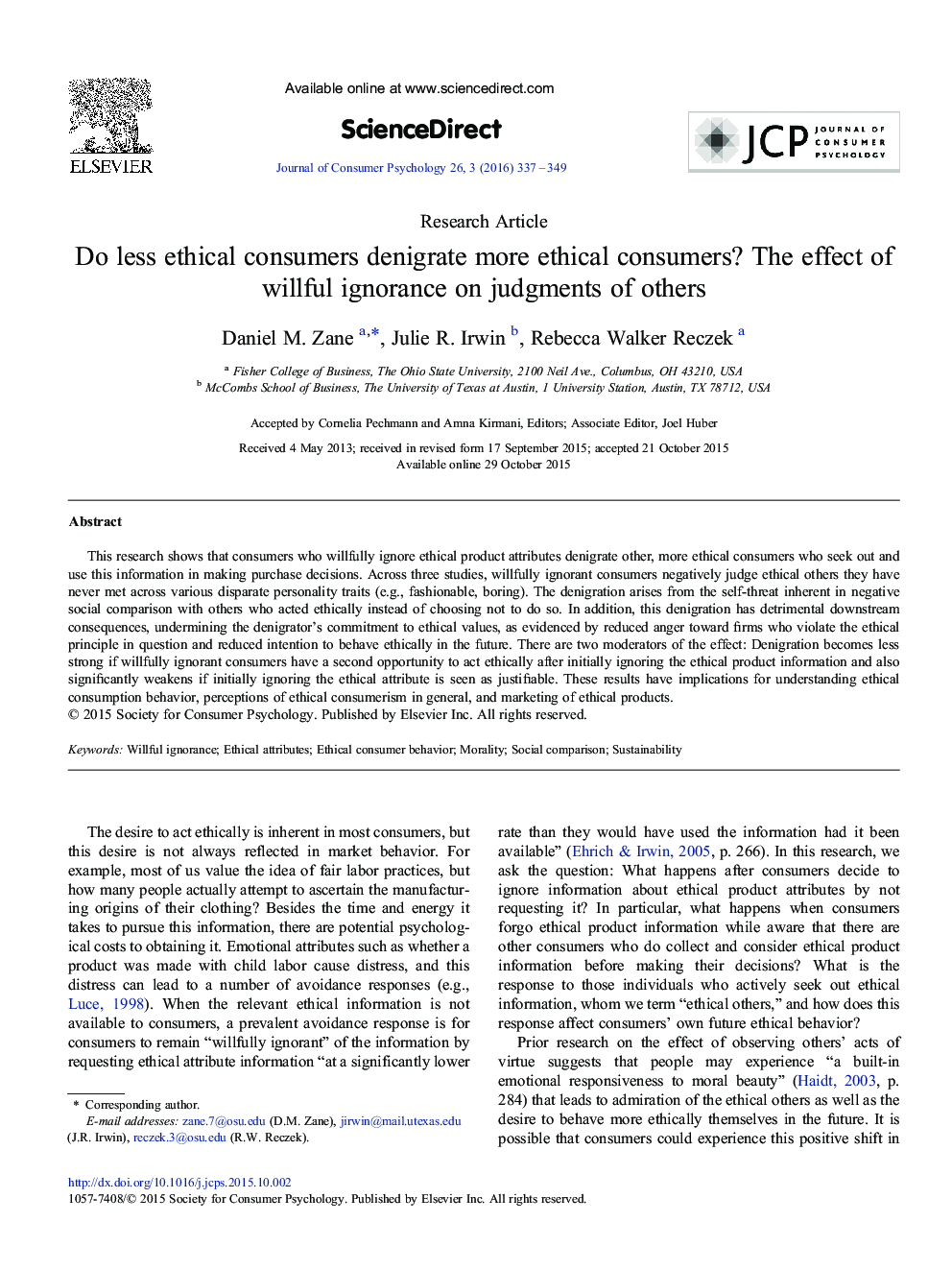| Article ID | Journal | Published Year | Pages | File Type |
|---|---|---|---|---|
| 881968 | Journal of Consumer Psychology | 2016 | 13 Pages |
This research shows that consumers who willfully ignore ethical product attributes denigrate other, more ethical consumers who seek out and use this information in making purchase decisions. Across three studies, willfully ignorant consumers negatively judge ethical others they have never met across various disparate personality traits (e.g., fashionable, boring). The denigration arises from the self-threat inherent in negative social comparison with others who acted ethically instead of choosing not to do so. In addition, this denigration has detrimental downstream consequences, undermining the denigrator's commitment to ethical values, as evidenced by reduced anger toward firms who violate the ethical principle in question and reduced intention to behave ethically in the future. There are two moderators of the effect: Denigration becomes less strong if willfully ignorant consumers have a second opportunity to act ethically after initially ignoring the ethical product information and also significantly weakens if initially ignoring the ethical attribute is seen as justifiable. These results have implications for understanding ethical consumption behavior, perceptions of ethical consumerism in general, and marketing of ethical products.
